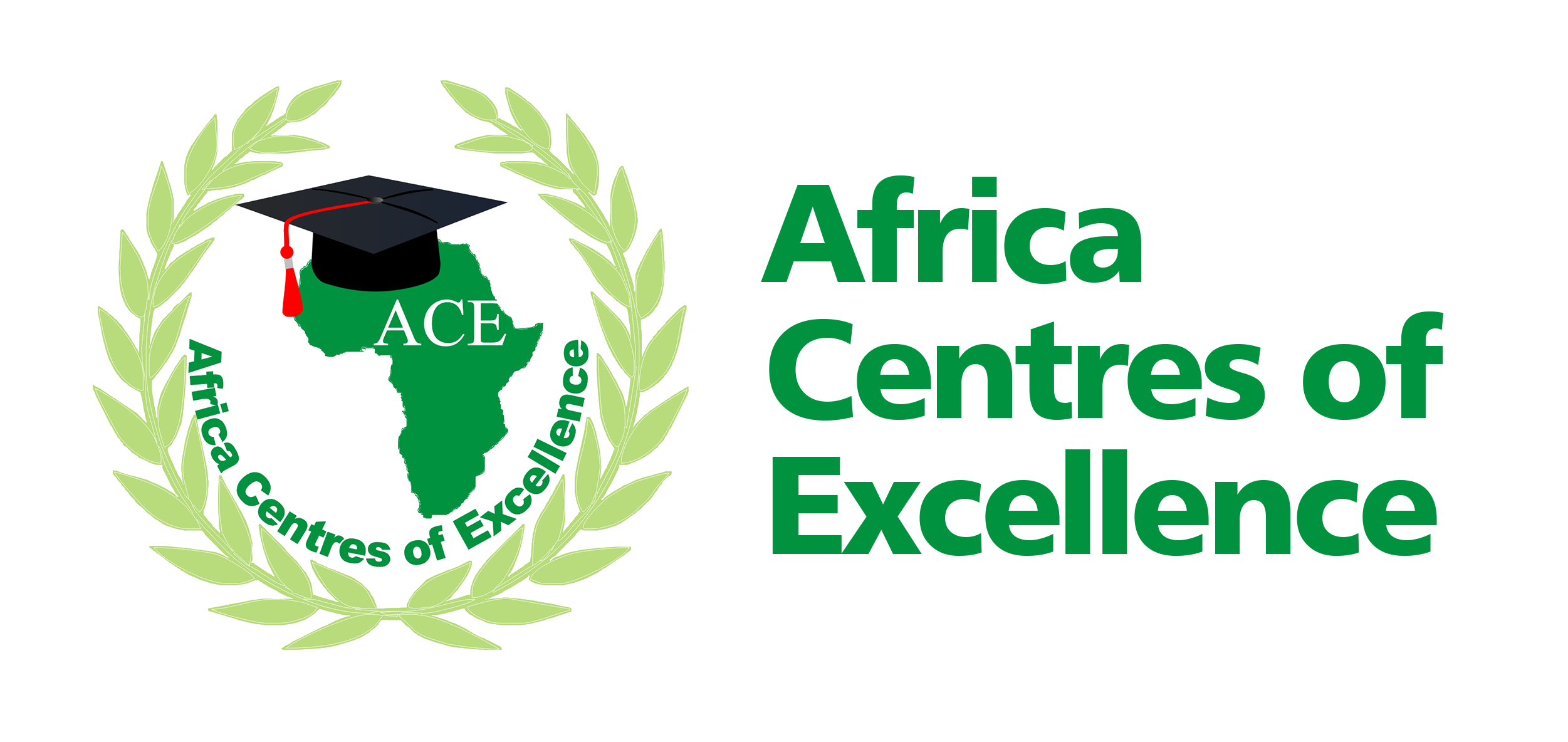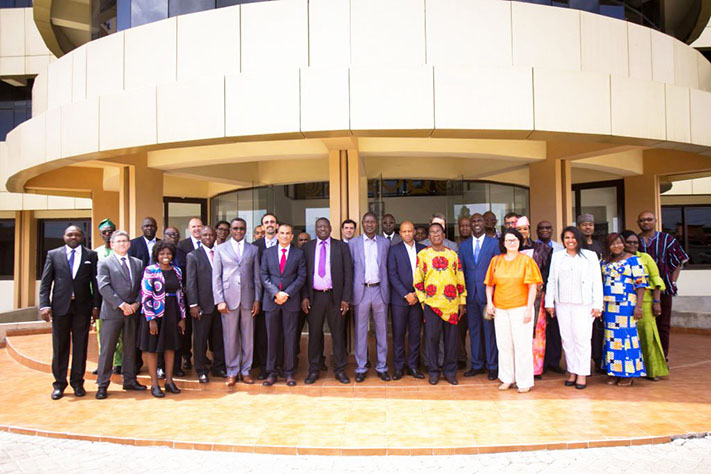The rigorous selection process of the third phase of the World Bank-supported Africa Centres of Excellence (ACE) Project, otherwise known as ACE for Development Impact (ACE Impact), came to a close on 2 November, 2018, with the conditional selection of 44 beneficiaries. A break-down of the 44 beneficiaries showed that 26 were new ACEs, while 18 were old Centres in the first phase (ACE I), which got their Projects renewed through additional funding.
Nigeria led the pack with 17, followed by Ghana with eight, Cote d’Ivoire and Senegal, four each; Burkina Faso and Togo, three each; Benin Republic got two, while Cameroon, Guinea and Niger got one each. Ten out of Nigeria’s 17 Centres were newly selected and the remaining seven got renewals.
The selection was the high point of the two-day meetings, hosted by the Association of African Universities (AAU) at its General Secretariat in Accra, Ghana. First was the 13th ACE I Project Steering Committee (PSC) meeting, which reviewed the performance of the Centres under ACE I, followed by the first ACE Impact Ministerial Project Steering Committee meeting, where the selection of the 44 Centres was done.
At the 13th ACE I PSC meeting, chaired by Professor Salifu Mohammed, members were presented the Project status and results of all the 22 Centres under the first phase in West and Central Africa, which covered student enrolment, internship, accreditation of programmes, learning achievement and environment, disbursements, supervision, etc, by officials of the World Bank and AAU, the latter being the Regional Facilitation Unit (RFU) for the ACE I and ACE Impact Projects.
One of the key decisions taken at the end of the meeting was to reinforce regional initiative of international quality assurance and accreditation between the African Union (AU) and AAU, with a strong message to the Centres to key into the process. Another decision was for governments and Centres to be informed about the regional character of the Centres and need for their sustainability after the World Bank support.
The first ACE Impact Ministerial PSC was chaired by the Ghanaian Minister of State for Tertiary Education, Professor Kwesi Yankah, who remarked, in his keynote address that “the development objective of the ACE Impact Project is to improve the quality, quantity and development impact of postgraduate education in selected universities through regional specialisation and collaboration”, adding that “this project will no doubt contribute to participating government’s objectives of reducing the higher-level skills gaps, improving applied research and technology uptake in the priority sectors and strengthening the best African universities.”
While expressing gratitude to the World Bank, AAU and their partners for the ACE Project and Ghana’s participation in it, Professor Yankah noted that “the strategy is to use these Centres as models to drive changes that will entrench Higher Education Institutions (HEIs) as principal producers of knowledge that directly impact on socio-economic development.”
Earlier in his welcome remarks, Secretary-General of AAU, Professor Etienne Ehile stated that “education is the engine for the development of our various countries” and the ACE Project, a timely initiative to make that development happen. He thanked the World Bank and other partners, including the governments of the countries hosting the Centres, for their commitment to the success of the Project.
The governments of Nigeria, Benin Republic, Burkina Faso, Cameroon, Cote d’Ivoire, Ghana, Senegal, Niger, Djibouti, Guinea, Togo and The Gambia had launched the third phase of the Project, known as Africa Centres of Excellence (ACE) for Development Impact (ACE Impact) last May, building on the successful implementation of and lessons learnt from ACE I in West and Central Africa.
ACE Impact Project is focused on scaling up postgraduate education and applied research that are fundamental to economic growth in the region. The universities housing the Centres are expected to meet global standards for quality of education, recruit students across the region and collaborate with other African universities. The total investment across the countries is expected to reach USD 300 million, with funding from the World Bank and Agence Francaise de Developpement (AFD).
According to the AAU, The final selection of the Centres is conditional upon: (i) the approval of the financing from the external financiers (World Bank and the AFD) and availability of sufficient financing for all the proposals; (ii) the selected universities incorporate the recommendations of the evaluators into their implementation plans, and (iii) the universities demonstrate sufficient capacity to manage the funds for their intended purpose. For the selected Centres where all of these conditions are met, it is planned that they will be approved for funding by April 2019.
AAU gave an insight into the rigorous and transparent process of selection. An independent team of evaluators, consisting of members from the African educational and scientific community supported by diaspora and global technical experts, reviewed the 105 proposals that were submitted to the RFU by higher education institutions from the participating countries. Proposals were subjected to several stages of evaluation including: (i) desk reviews in which each proposal was reviewed by two experts in Accra, Ghana; (ii) external evaluation in which each proposal was remotely assessed by a subject matter specialist, and (iii) a site and leadership evaluation in which a team of experts visited shortlisted proposal sites to ascertain the readiness of the institutions in terms of governance, leadership, and infrastructure.
The ACE Impact Ministerial Project Steering Committee that met in Accra consisted of five Ministers in charge of Higher education and seven high-level government representatives from the participating governments. It received a total of 110 proposals for the final stage of the selection process.
The priority fields of ACE Impact are Science, Technology, Engineering and Mathematics (STEM), Health Sciences, Agricultural Sciences, Environmental Sciences and Applied Social Sciences.
The Project consists of three components:
Component 1: Establishing new and scaling up well-performing existing ACEs for development impact.
Component 2: Fostering regional partnerships for emerging Centres and regional scholarships.
Component 3: Enhancing regional facilitation as well as monitoring and evaluation (M& E)
The 10 new Centres in Nigeria and their Institutions are as follows:
ACE in Applied Informatics and Communication, Covenant University, Ota.
Centre for Public Health and Toxicology Research (PUTOR), University of Port Harcourt.
ACE for Sustainable Power and Energy Development, University of Nigeria, Nsukka.
ACE on Technology Enhanced Learning (ACETEL), National Open University of Nigeria.
ACE in Future Energies and Electrochemical Systems (ACE-FUELS), Federal University of Technology, Owerri.
ACE on New Pedagogies in Engineering Education (ACENPEE), Ahmadu Bello University, Zaria.
ACE for Drug Research, Herbal Medicine Development and Regulatory Science (ACEDRHMDRS), University of Lagos.
ACE for Mycotoxin and Food Safety, Federal University of Technology, Minna.
Centre for Population Health and Policy (ACEPHAP), Bayero University, Kano
ACE for Innovative and Transformative STEM Education (CITSE), Lagos State University, Ojo.
The seven existing ACEs, which got additional funding are:
ACE in ICT-driven Knowledge Park (OAK Park), Obafemi Awolowo University, Ile-Ife.
Centre for Oilfield Chemicals Research (CEFOR), University of Port Harcourt.
ACE for Genomics of Infectious Diseases (ACEGID), Redeemer’s University, Ede.
ACE on Neglected Tropical Diseases and Forensic Biotechnology (ACENTDFB), Ahmadu Bello University, Zaria.
ACE in Reproductive Health and Innovation, University of Benin.
Centre for Dryland Agriculture (CDA), Bayero University, Kano.
Centre for Food Technology and Research (CEFTER), Benue State University, Makurdi.

